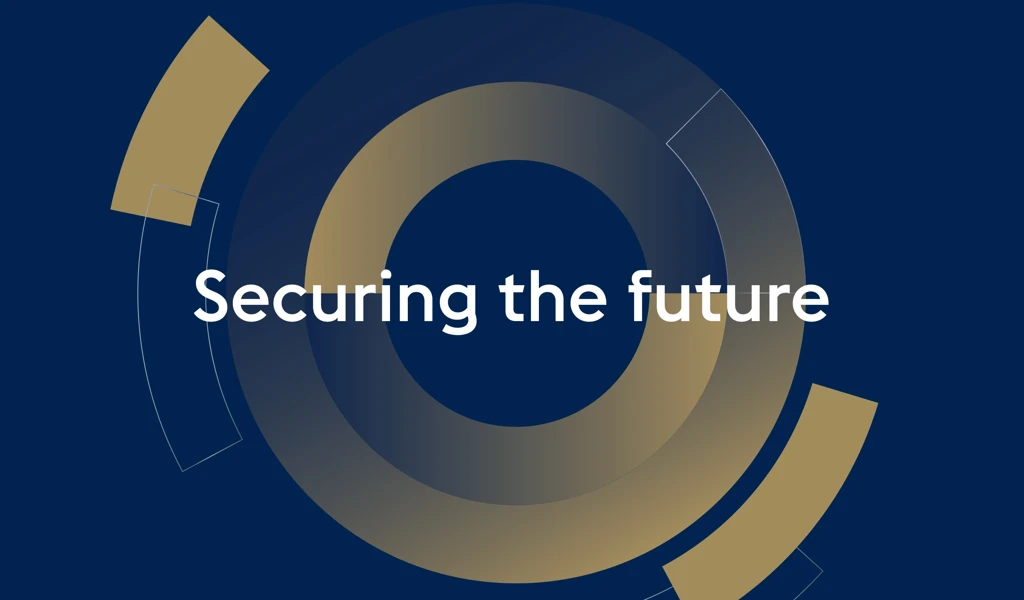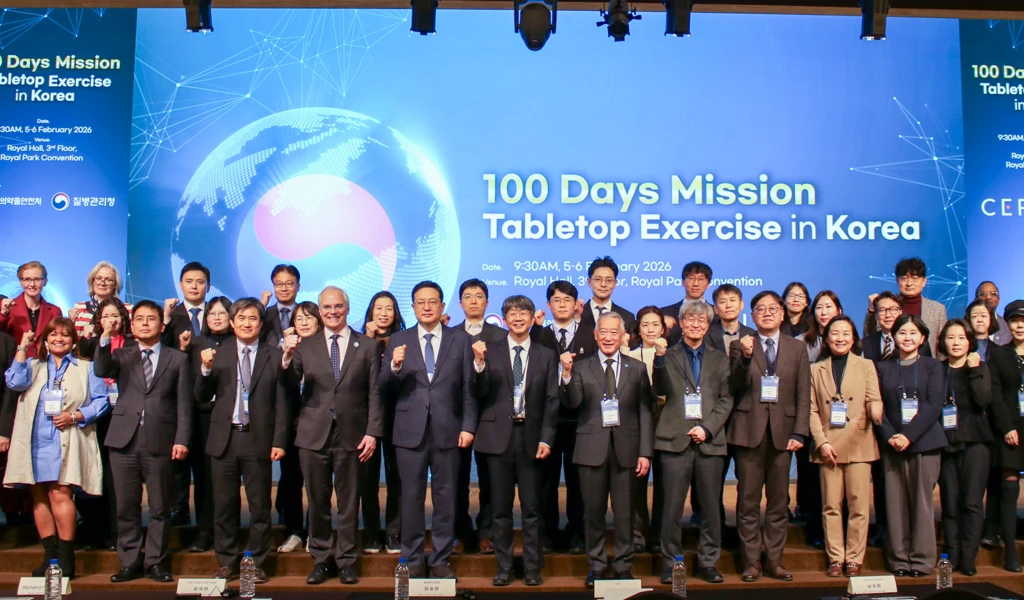Dr Richard Hatchett, CEO of CEPI, reflects on the final report of the Independent Outcome Evaluation of CEPI's first five-year business cycle:
In a couple of months CEPI will mark the sixth anniversary of its founding at Davos in January 2017. Since that time the organization has grown from just a concept, borne out of the experiences of the devastating West Africa Ebola epidemic, into one of the world's leading funders of R&D and an established fixture in the global health architecture. And of course, as the organization has grown and matured it has navigated the turbulence and complexity of the worst pandemic in living memory and made a significant contribution to the global fight against it.
While I am proud of what we at CEPI have achieved so far, I am not complacent about the challenges that lie ahead. We are a young and growing organization which must continually strive to improve if we are to meet the ambitious targets we have set for ourselves, and achieve our goal of making the threat of epidemics and pandemics a thing of the past. Since CEPI's inception it has been a central feature of the organization's culture to learn and evolve, both through internal and external processes. The end of CEPI's first five-year business cycle from 2017-2021 (‘CEPI 1.0') offers a valuable opportunity to reflect on how far CEPI has come from its origins in the Swiss mountains in 2017, and on how much remains to be done.
And it was with that perspective that CEPI commissioned an Independent Outcome Evaluation to assess CEPI 1.0 in terms of its effects on society (i.e., the impact of CEPI's activities and investments), the sustainability of the results achieved, and the main lessons learned from CEPI's first five years. This evaluation contributes to the record of CEPI's progress and impact during CEPI 1.0, and its findings will help to identify areas for improvement and inform the implementation of our next strategic period (‘CEPI 2.0').
Following a competitive process, Cambridge Economic Policy Associates (CEPA) was selected as the independent evaluator to conduct this project. CEPA's work was overseen by an independent evaluation committee of external experts that was charged with upholding quality and independence. I am pleased to publish today the full final report (‘the Report') produced by the evaluator, as well as a CEPI Management Response to the Report which includes details of how we plan to address the findings.
Read the Independent Outcome Evaluation Report here
Read the CEPI Management Response here
When considering the findings of this Report, it is important to bear in mind the context in which CEPI has operated and the organizational progress it has made during this reporting period. CEPI was launched and simultaneously initiated its first call for proposals in January 2017, with around 10 staff at the time. Since then, CEPI has built an organization, expanded the Coalition, raised funds, and executed (and adapted) its strategy in parallel, while adapting to an environment which has changed significantly since the organization was envisaged by its founding members, as well as stepping up to combat a pandemic which fundamentally altered the environment in which we operate.
The emergence of the pandemic compelled CEPI to go far beyond what was originally envisaged of us as an organization. Our response involved not only our ‘core business' of accelerating access-focused vaccine R&D, but also moving into late stage development and manufacturing for the first time and co-founding and co-leading COVAX, an unprecedented global effort to deliver vaccine equity. CEPI's performance during this reporting period must therefore be analyzed through the lens of these extraordinary circumstances.
In a couple of months CEPI will mark the sixth anniversary of its founding at Davos in January 2017. Since that time the organization has grown from just a concept, borne out of the experiences of the devastating West Africa Ebola epidemic, into one of the world's leading funders of R&D and an established fixture in the global health architecture.
There is much to be proud of that is captured and accurately reflected in the Report. The core conclusions of the Report serve as an endorsement of the Founders' perspicacity: CEPI has strongly proved its concept over the first five years of its existence and occupies an essential niche in the development of EID vaccines. It has made progress in advancing vaccine candidates for its priority pathogens, correctly identified the strategic need for progressing innovative platform technologies and demonstrated speed, agility and innovation in responding to the COVID-19 crisis. Overall, this first period of operation, including the rapid pivot to COVID-19, has yielded many lessons for the operationalisation and implementation of CEPI 2.0.
However, the report also provides a frank assessment of where CEPI has not fully achieved its ambitions with respect to addressing downstream bottlenecks, engaging MNCs and LMICs, and mobilizing resources. While I might not agree with every aspect of the assessment, I believe it represents a fair, balanced, and independent perspective on CEPI's growth and performance during this critical formative period. It offers instruction and sound recommendations for improvement as we continue building CEPI into the organization that we want it to be.
The emergence of the pandemic compelled CEPI to go far beyond what was originally envisaged of us as an organization. Our response involved not only our ‘core business' of accelerating access-focused vaccine R&D, but also moving into late stage development and manufacturing for the first time and co-founding and co-leading COVAX, an unprecedented global effort to deliver vaccine equity. CEPI's performance during this reporting period must therefore be analyzed through the lens of these extraordinary circumstances.
The nature of CEPI's work means that many of our goals will take time to deliver, so it is still too early to judge the ultimate impact that many of CEPI's activities in this reporting period will have. However, I agree that the themes highlighted in the Report are areas that CEPI needs to focus on as the organization moves forward. Through the process of developing and beginning to implement the CEPI 2.0 strategy, we have already identified many of these themes and begun to develop strategies to address them, but the publication of the Report provides a welcome opportunity to set out CEPI's thinking. Following discussion with our Board we have developed responses and proposed actions in response to the six themes identified by the independent evaluator: these are outlined in the Management Response, and progress against them will be tracked closely at CEPI and monitored by the Board.
As the organization matures, CEPI is committed to listening and improving, including through independent evaluations of our effectiveness such as this one. In its short lifetime, CEPI has commissioned multiple reviews which have all contributed to improving the way it works. Cumulatively, these demonstrate CEPI's commitment to being a learning organization which is open to reflection and feedback, constructively engages with partners, and constantly ensures that its strategy and ways of working facilitate the best possible chance of achieving the organization's mission: accelerating the development of vaccines and other biologic countermeasures against epidemic and pandemic threats so they can be accessible to all people in need.
Read more
Independent Outcome Evaluation Report
CEPI Management Response



.webp)